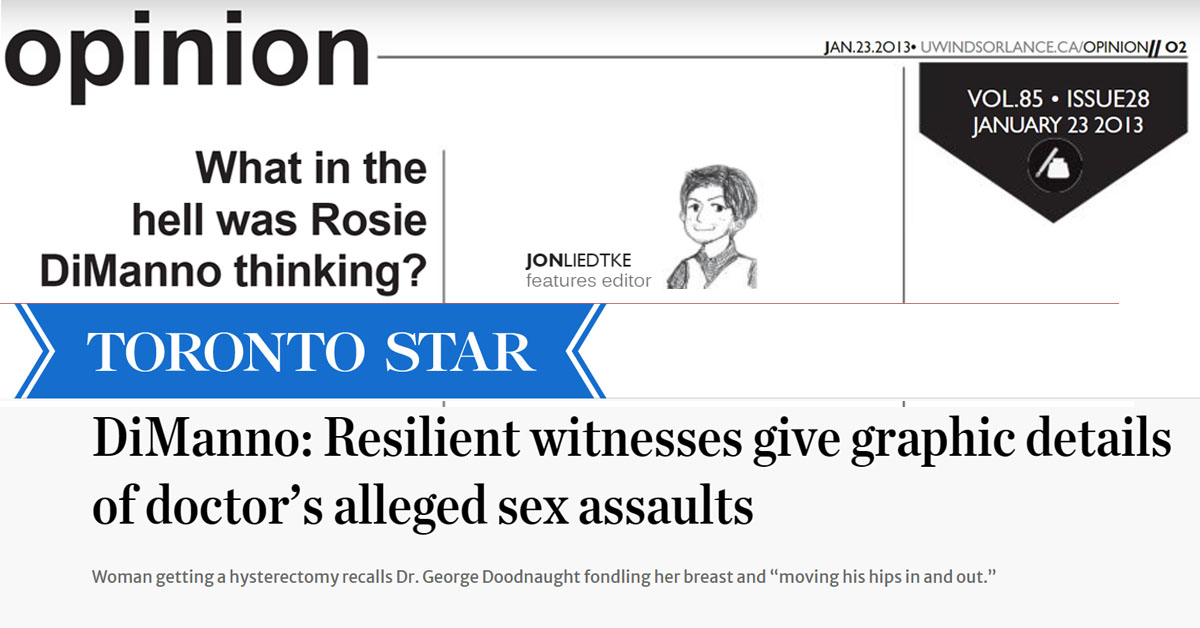UWindsor Lance
Issue 28, Volume 85
Jan. 23, 2013
Jon Liedtke
Toronto Star columnist Rosie DiManno began her Jan. 18 piece about the trial of Dr. George Doodnaught by graphically stating that a victim of his alleged sexual assault during a surgical procedure “lost a womb but gained a penis.”
She certainly wasn’t thinking of the words compassion, care or tact. Nor was she thinking about what the victims went through on the tragic day when they were sexually assaulted.
While the lede sentence certainly left questions in the mind of the Star’s readership, DiManno went on to fully explain the details of the case in morbid detail: “The former [womb] was being removed surgically— full hysterectomy— while the latter
[penis] was forcibly shoved into her slack mouth.”
Appalling, reprehensible and downright offensive.
The internet exploded with condemnation of the column and, within days, major media outlets including Gawker and Jezebel were criticizing DiManno for her lack of tact.
While a lede is meant to be attention grabbing and often times shocking, such is not the case for a column about a gruesome sexual assault trial which involves 20 different women.
In the face of opposition, the public editor for the Toronto Star released a statement explaining the conduct of her writer.
DiManno was defended as one of the Star’s “best and most prolific writers,” but the editor conceded that she personally concurred with readers’ critical reactions of the piece.
Journalists have a duty to tell a story, and often, that story is difficult to tell because it affects somebody on a deeply personal level.
There is no way to avoid this in journalism; it is a fact of professional life. At best, a young journalist can put off for a while and hope that when they do have to write such a story, they will be ready for it.
DiManno overstepped her bounds as a journalist when she sensationalized what was a deeply personal issue. Her job was to tell the story, not to make it compelling and gripping to her readership through exploitation; the story had enough merit to do it on its own.
If there was but one positive take away from the entire endeavor, it would be that Twitter birthed a hilarious new hashtag regarding the matter— #rosiedimannolede— which pokes at the situation.
@tomhawthorn: The Weimar Republic collapsed but Germany gained a fuhrer. #rosiedimannolede
@Iris9: She lost her mind but they continued to pay her anyway #rosiedimannolede
Journalists have to be empathetic to gain the trust of both those they interview and their audience as a whole. Empathy is what separates the frilly great journalists from those who simply perform their job on a daily basis.
DiManno could benefit much from honing her lack of empathy skills. At the very least, it might make her work more palatable.
What in the Hell was Rosie DiManno thinking?
Issue 28, Volume 85
Jan. 23, 2013
Jon Liedtke
Page 2
Jon Liedtke was the Features and Opinions Editor, Advertising Manager and Deficit Consultant at the UWindsor Lance.




Leave a Reply